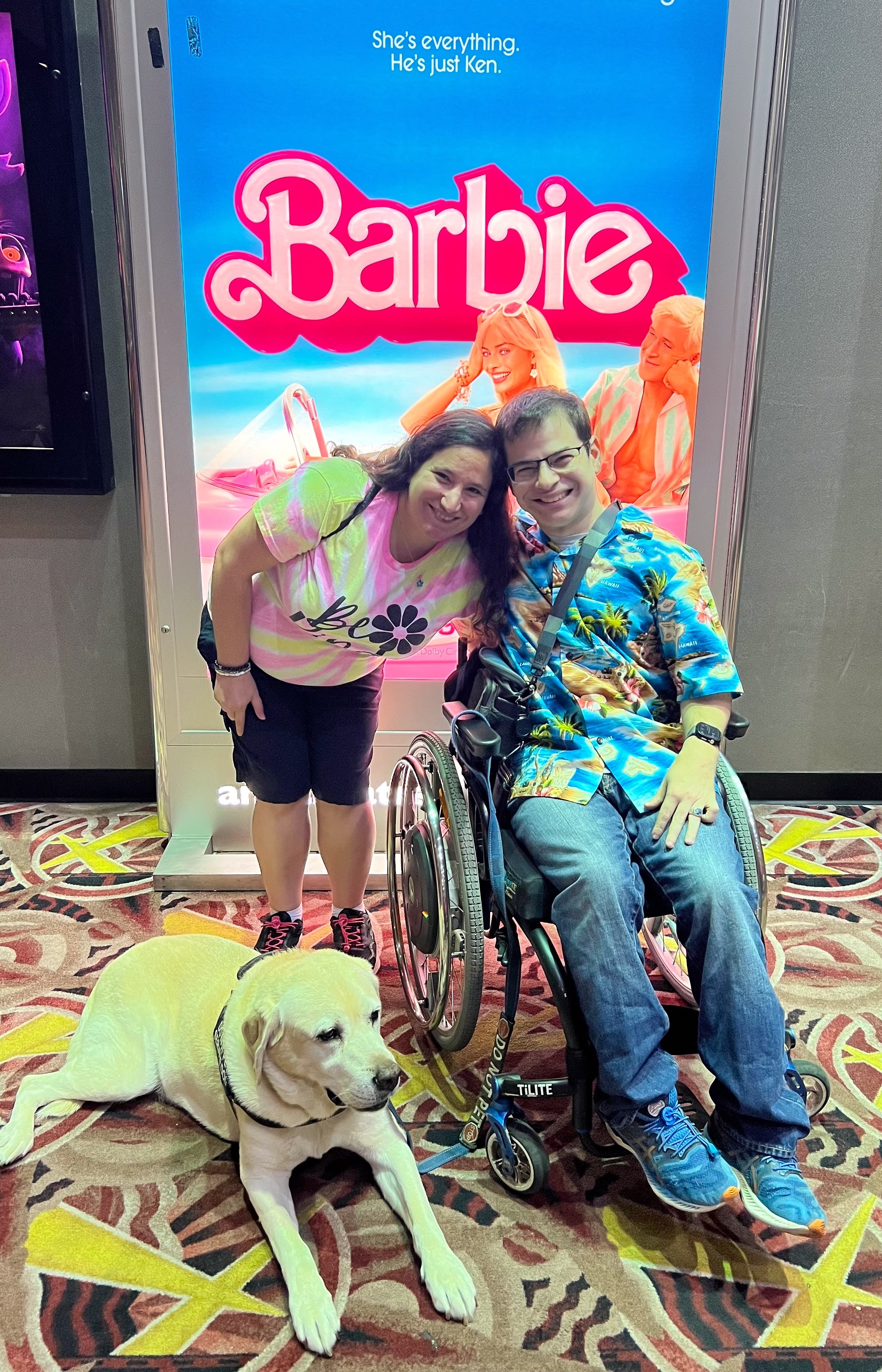Ryan, Rachael, and Pico pose in front of the poster for Barbie Movie.
This past weekend, my girlfriend and I joined the throngs of Mattel, Inc. Barbie enthusiasts to watch the much-anticipated Barbie movie. As a disability advocate and a fan who may have unapologetically bought "KENough" merch, I was particularly interested in the representation of Wheelchair Barbie, a character that has been a beacon of hope for many young individuals who use wheelchairs.
The movie was entertaining, and the diversity representation was commendable. However, I couldn't help but notice that Wheelchair Barbie, despite her presence in the opening dance scenes, had no dialogue throughout the movie. This was a stark reminder of the reality that, as Madison Lawson writes in her Teen Vogue op-ed, "People with disabilities are rarely featured as the ideal beauty standard, and are often used as objects of inspiration to make non-disabled people feel better about themselves."
The lack of dialogue for Wheelchair Barbie speaks volumes about the broader perception of disability in our culture. It's as if our voices are not deemed important enough to be heard, even in a movie that prides itself on diversity and inclusion.
The struggles faced by Senator Tammy Duckworth, a disability advocate and wheelchair user, further underscore the challenges we face. As reported by POLITICO, Senator Duckworth was unable to watch the Barbie movie due to a broken elevator at the theater. This incident highlights the persistent accessibility issues that prevent full participation in society for individuals with disabilities.
On a more positive note, a resurfaced video of Margot Robbie, the star of the Barbie movie, communicating with a deaf fan at the movie premiere in Amsterdam, has been making rounds on the internet. While many outlets have praised Robbie's actions, I believe that such acts of inclusion should be normalized rather than sensationalized. Inclusion is not a favor or an act of charity; it is a basic human right.
As we wind down Disability Pride Month, let's remember that representation matters, but it's not enough. We need to ensure that our voices are heard, our experiences are acknowledged, and our rights are respected. Let's strive for a world where inclusion is the norm, not the exception.
The Barbie movie, with its appeal and lessons, transcends the gender spectrum. It's a reminder that stories of inclusion and diversity are not just for girls or boys, but for everyone.
Wheelchair Barbie Is a Lesson in the Power of Showing Up Where People Don't Think You Belong

